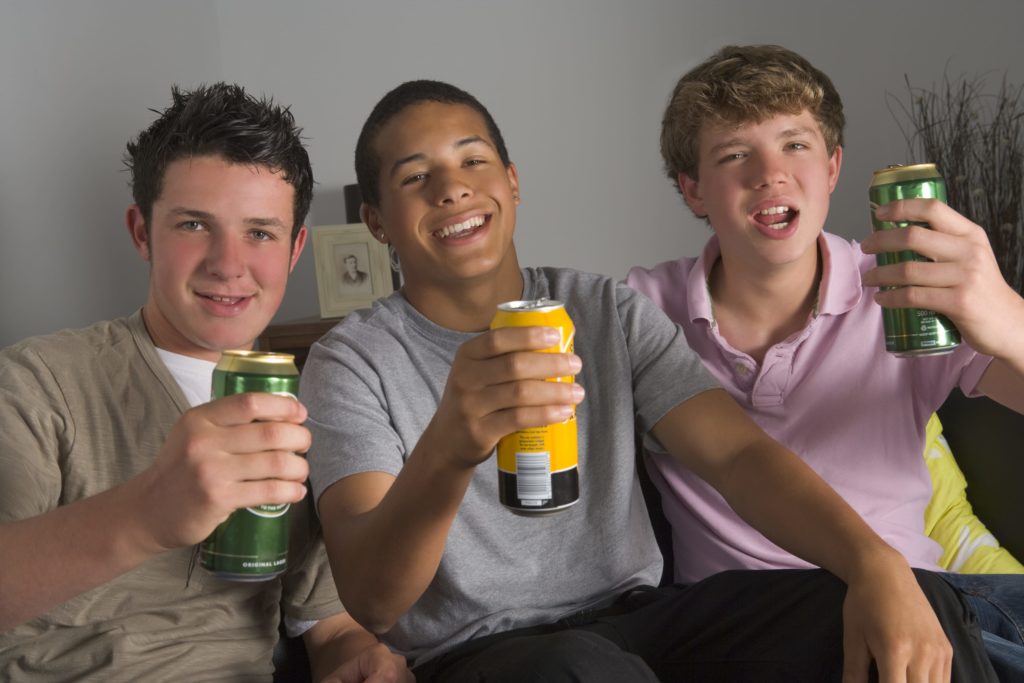Parents or guardians are on the front lines when it comes to detecting and addressing underage alcohol use. However, it can be difficult for parents and guardians at home to get the full picture when it comes to their teenagers’ behaviors and attitudes. This is because of the many hours that teens spend at school and school-related or extracurricular activities. As a result, teachers and school officials can also play an important role in recognizing the signs that a teenager may have developed an alcohol use problem.
Teens Who Mature Early or Late May Be at Higher Risk
According to the Surgeon General’s Underage Drinking Educator Guide, teens who mature earlier than their peers and teens who mature later may both be at higher risk for underage drinking. Educators, because they encounter thousands of teenagers over the course of their careers and because they see these young people side by side on a daily basis, may be better able to identify those teens who are at the farthest ends of the developmental maturity spectrum.
Educators Are the First to Notice Academic Performance Changes
Drops in academic performance are a frequent consequence of teenage alcohol problems. Teachers are often the first people to recognize when academic performance begins to take a dive. If they choose, teens can often keep academic struggles hidden from their parents for quite a long time, leaving parents ignorant of this classic sign of underage alcohol use. Change is a critical component of this indicator. Many people struggle consistently in school, which isn’t a warning sign on its own. But a significant shift — such as a relatively high-performing student suddenly earning below-average grades — means teachers should be looking for some kind of explanation. Frequent absences and the need for disciplinary action often accompany drops in grades that are the result of alcohol use. If the explanation for these changes is not readily apparent— such as an illness or a loved one’s death, for example — alcohol problems shouldn’t be ruled out.
Changes in Friends, Appearance and Attitude Are Warning Signs
A variety of other signs frequently indicate alcohol problems, and while educators may not be any better placed than parents to pick up on them, their observations can help to establish a pattern that makes it clear that more is going on than typical teenager-parent friction or a few bad days. Mood changes, particularly increases in irritability and defensiveness, can be signs of alcohol problems. So can adopting an attitude of disinterestedness and behaving as though nothing is important. Teens abusing alcohol can show mental symptoms such as lack of concentration and poor memory. The physical signs of alcohol problems include bloodshot eyes, sloppier appearance, lack of energy and poor coordination. Teens may also start hanging out with different friends than the ones to whom they used to be close. If their new friends are ones that they are not eager for their parents to meet, educators may be better positioned to pick up on these changes.
What Educators Should Do
Unlike parents or guardians, educators don’t always have the authority to take direct action concerning underage alcohol use. If students are found to be intoxicated or in possession of alcohol, they’ll be subject to school disciplinary procedures. However, if educators only have suspicions, they’re often forced to address the symptoms rather than the suspected cause. Educators may choose to contact parents directly about sudden drops in academic performance. They can refer students to a school nurse if there are signs of poor physical health that may suggest alcohol use. They can also refer students to a counselor or other authority for attitude and disciplinary issues. Once parents are aware that their teenager may have an alcohol problem, educators can also help parents to access programs for substance abuse education and treatment.






